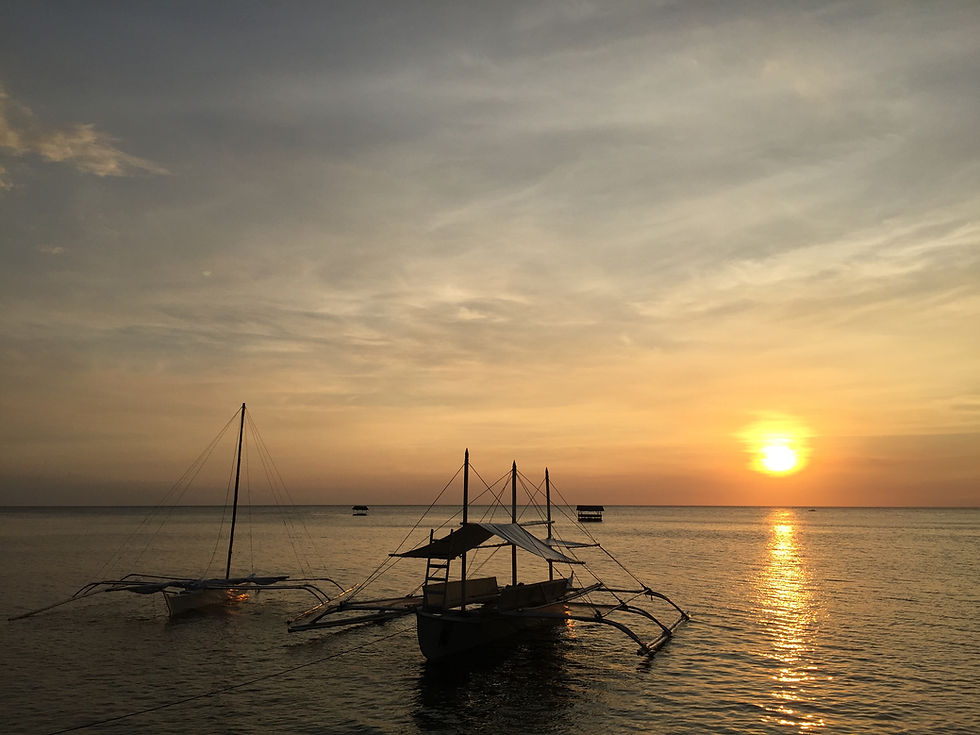Creating My Fertile Ground
- Jen Horn

- Sep 25, 2020
- 3 min read
This post is not about soil health as much as it is about soul health. It was written about a month ago for the Forest Foundation Philippines and Where To Next Journal, with a prompt to write about places that move me. However, writing this helped me realize that being moved by a place does not necessarily require being in that place (although of course that can help). COVID has restricted our freedom to move around, but it hasn't restricted our freedom to reflect, recall and recognize the lessons we've learned from the places we've been. Sometimes, remembering the places and the people there, how they made you feel, and the love, hope and sense of possibility they imbued in you can be enough to keep you going.
"Different plants thrive in different soil. Find your 'soil' so you can thrive."
This is what my sort of adoptive mother in Negros, Ina Gaston, told me when I chatted with her at in July. We were talking about graduate school, but a part of me yearned to move out to the province and away from Manila. I asked her, "Do you think that the 'educated' are better off not being in the province? That their talents are better utilized elsewhere? And I wonder, is your dream for your children ultimately to get a good education and move somewhere else?”

In true Tita Ina fashion, she gave me that nugget of wisdom, and in a way, permission for some self-acceptance over my ever-prevailing self-doubt. I began to get teary-eyed, and recalled how she made me cry a few years earlier.
In 2017, I was going through a rough patch. I had been having more doubts about myself and the work I do with Muni. Somehow, five years in, we had still managed to keep our projects: Muni Meetups, Muni Markets and other campaigns — thanks to a passionate core team, volunteers, and our growing community of sustainability advocates — but I wasn’t sure if this was enough to make a difference in this world. Neither did I know how to sustain things at that point, money and energy-wise.
I took my doubts and burnout as a sign that I needed a break. I chose to take a month-long trip to a province that feels like home — Negros Occidental.
I stayed with Tita Ina and her family for a few nights. Through Pureza, a film produced by her husband Joey, I found out about the collapse of the sugarcane industry and its systems that oppressed and continue to oppress farmers.I joined Tita Ina on a visit to one of their community partners for Hacienda Crafts, an enterprise that she and Tito Joey set up to support the livelihood of sugarcane farmers, while preserving local craft traditions. It was there where I witnessed hope.

During that much-needed break, I learned from other people doing amazing things for their local communities: from Dave Albao of Danjugan Island who works to conserve marine protected areas, while engaging nearby communities about environmental conservation and zero waste living; to Chin Uy of Fresh Start Organic, whose advocacy is to regenerate the earth through organic farming practices that also properly compensate farmers.

Every now and then, we just need to be reminded that there are other people out there who are working towards creating a world where we can all live more harmoniously with nature. The conversations I had with them made me remember that what I did mattered too, because we all have our own ways of being and giving to this world.
While I’m currently unable to visit Negros, I’m reminded that the soil Tita Ina had mentioned does not refer to proximity nor place — rather, it has a lot more to do with my mindset and my embrace of possibility and potential, wherever I may be. All I need to do is continue to condition my soil. In the farm or garden as in life, the things we might consider as waste can help us bloom later on.
Eco-challenge: Compost your kitchen waste and turn it into nourishing soil for your food garden. Sprout joy by growing your own food garden (even in just pots). While some seeds might not sprout and others might die, find the magic in the seeds that do grow each day.








Comments